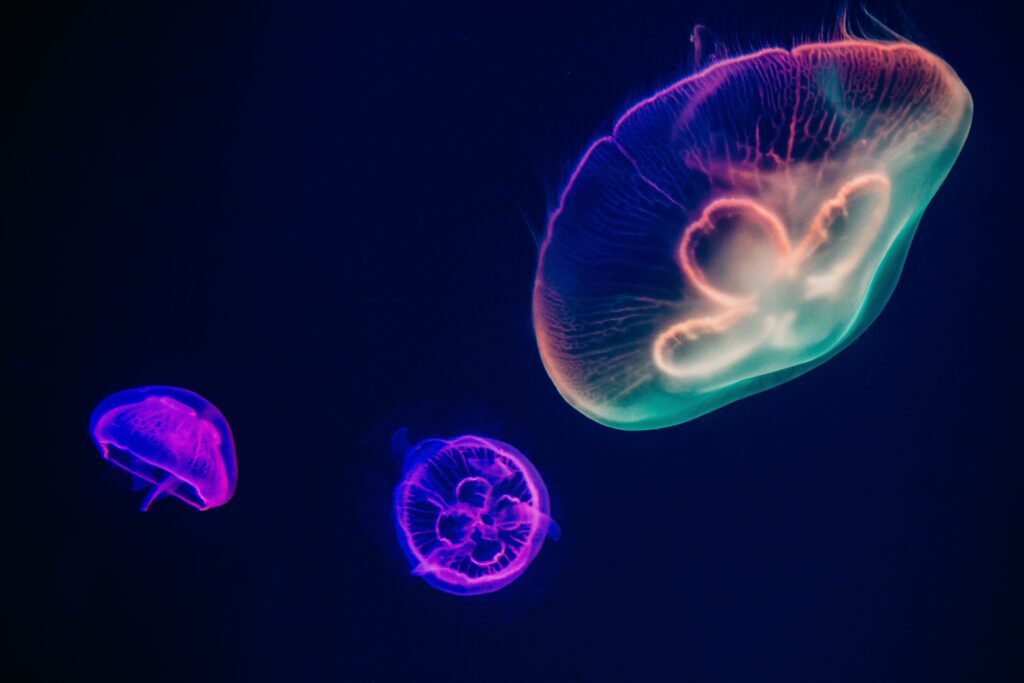Celebrating Innovation: Announcing the Winner of the Trailblazer Programme
We are pleased to present the winner of the Trailblazer 2024 Programme, Bloom Labs, a pioneering company at the forefront of sustainable material innovation.

We are pleased to present the winner of the Trailblazer 2024 Programme, Bloom Labs, a pioneering company at the forefront of sustainable material innovation.

The new Trailblazer Programme, presented by Global Fashion Agenda (GFA) and PDS Ventures, seeks to support early-stage innovators accelerating the transformation of the fashion and textile industry with planet-positive solutions. As the winning company, Bloom Labs will receive a significant equity investment along with commercial and operational support to help bring their innovation to scale. They will also be celebrated on stage at Global Fashion Summit: Copenhagen Edition on 22-23 May 2024.
The programme aims to identify and support fashion’s most promising early-stage innovators.
Applicants were reviewed and shortlisted by an esteemed jury, including representatives from GFA, PDS Ventures, MIT, Ralph Lauren Corporation, Fashion For Good, and H&M Group. Eight shortlisted innovations received feedback and investment pitch training from industry experts and will all be showcasing at Global Fashion Summit in an exclusive Trailblazer booth.
Bloom Labs is accelerating the transition towards a circular economy by tapping into the billions of tons of fibrous protein waste produced annually to create bioplastics and textile fibres at scale. Through a closed-loop process and 100% bio-based ingredients, Bloom Labs combines the best of natural fibres, such as handfeel, breathability and softness, with the efficiency of industrial fibre processing, reducing the use of resource-intensive natural fibres and synthetics.
Harnessing the untapped potential of abundant natural waste by-products, Bloom Labs develops high-performance materials that are scalable and commercially viable, avoiding harmful petrochemicals and resource-intensive processes. Using advanced protein engineering and molecular biology, their proprietary technology regenerates waste into practical and versatile pellets, which are spun into high-performance fibres.
Bloom Labs addresses critical environmental issues posed by synthetic fabrics, which are fossil fuel-based, shed microplastics, and do not biodegrade. Their innovative approach offers a sustainable alternative, helping to mitigate the significant environmental impact of traditional textile production.
In addition to Bloom Labs, we are proud to recognise the innovative efforts of our other shortlisted candidates. Each of these trailblazers has demonstrated exceptional potential in addressing various challenges across the fashion value chain. Their groundbreaking solutions showcase the diversity and creativity driving the future of sustainable fashion.
Treekind® by Biophilica is a unique leather alternative free of polyurethane and PVC. It is made with lignocellulose – specifically urban leaves, stems, and stalks from parks and gardens as well as similar inedible agricultural feedstocks. Treekind® is recyclable and only uses compostable inputs. The result is a material that has very low recourse footprint. Treekind® uses 0.1% of the water used in equivalent leather processing, with zero toxic chemicals in its formulation. Treekind® is a truly sustainable solution for brands and designerslooking for an alternative to both conventional leather and synthetic PU and PVC materials.
DyeRecycle is a colour and fibre innovation company with a mission to pioneer chemical circularity and fiber circularity within the textile industry. Its integrated solution tackles the complexities of recycling diverse textile waste, lacking sustainable technology for fibre decolorization and synthetic dye recycling. DyeRecycle decolorizes textile waste fibres and repurposes extracted dyes, creating recycled synthetic dyes. With a commitment to achieving net-zero environmental impact, DyeRecycle aims to significantly reduce the textile industry’s dependence on virgin materials — without sacrificing performance or creativity.
PACT is on a mission to create the most beautiful, high-performing, and climate-responsible material at scale for fashion and beyond. PACT collaborates with innovative fashion brands and pioneers to accelerate the systemic change desired within the industry. Inspired by generations of leather artisans and master craftspeople, PACT is beginning with an advanced material: Oval. Oval is a supple material made from collagen sourced from industrial by-products. It is a highly scalable material that offers designers unparalleled flexibility whilst minimising environmental impacts across the entire production process.
Silana built the first sewing robot globally and a solution to target fashion’s overproduction problem. Silana is on our mission to nearshore the production of 1 billion clothing pieces annually. With the backing of established textile investors, first paying customers, and a strong pipeline for US market entry, silana will establish itself as the leading FashionTech player, reducing the CO2 emissions / T-shirt of > 38%. Silana’s sewing robots can produce simple T-shirts, in different styles and sizes – fabric independent – without overproduction or precarious working conditions.
Sparxell creates the next generation of colours and effects by pioneering the world’s first plant-based performant colourants inspired by nature.Sparxell’s technology platform empowers brands to meet evolving regulations and consumer trends towards sustainable colourants. The innovative products deliver colour vibrancy and effects usually obtained from metals, minerals and dyes often combined with plastics. Spraxell transforms industries like cosmetics, fashion, packaging, and more, combining biodegradability, non-toxicity and low carbon footprint with the best optical performance.
Syntetica has developed a breakthrough chemical process to recycle nylon rich textiles to produce decarbonised circular materials for the textile industry. Founded by Marco Bertone, ex-head of growth of the fashion marketplace The Bradery & Selency, and Louis Monsigny, one of Europe’s leading chemical experts with a PhD in molecular catalysis and a decade of research in plastic depolymerisation. Syntetica is finalising commercial contracts with industry leading fashion brands as it seeks to reach a pre-industrial stage over the next 18 months.
The Hurd Co makes it possible to make clothing from agricultural waste with agrilose®: a 100% agriwaste-based feedstock pulp that the apparel industry uses to make fabrics like viscose/rayon and lyocell, which are normally made from trees. In addition to being tree-free, The Hurd Co’s patented technology is a zero emission process that uses 50% less water and 90% less energy than conventional pulping processes. Agrilose is a one-to-one replacement for tree pulp and will be available at a cost-competitive price, making it an easy substitute for manufacturers and an easy choice for brands.